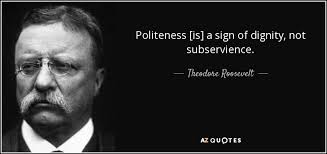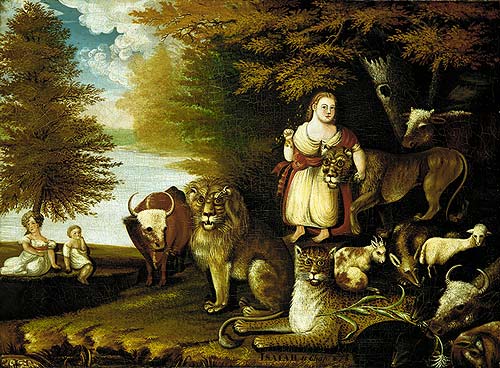Yes, I know what it is, but it is mildly amusing that the same body which has given us the New Roman Missal has now declared a “fortnight for freedom.” The bishops are certainly seeking to raise American society above a 6th grade reading level!
The recent proposal comes from the new document, Our First and Most Cherished Liberty, that makes a real effort to come to grip with the entire scope of religious freedom. Commonweal has already put out a scathing critique of the document. But I do think two things are particularly positive in the document. First, it cites a series of examples, not just the HHS mandate, and that series seems intentionally chosen to blur liberal/conservative lines. The second issue mentioned is laws that endanger those who provide services to “illegal” undocumented immigrants. By citing such an example, the bishops take a step toward shaping the issue in a truly Catholic, rather than partisan, way.
But an even better step is found later on. The bishops state:
Religious liberty is not only about our ability to go to Mass on Sunday or pray the Rosary at home. It is about whether we can make our contribution to the common good of all Americans. Can we do the good works our faith calls us to do, without having to compromise that very same faith?
This seems to me EXACTLY the right thing to say. The problem here is whenever the government defines religion in a too-narrow way, presuming that religion is merely a matter of worship or private devotion, rather than of practice. I hope the bishops press this issue, because it also will encourage Catholics to recognize that the social teachings of the Church are a fundamental obligation of faith. The bishops stirringly point this out later in the document:
We recognize that a special responsibility belongs to those Catholics who are responsible for our impressive array of hospitals, clinics, universities, colleges, schools, adoption agencies, overseas development projects, and social service agencies that provide assistance to the poor, the hungry, immigrants, and those faced with crisis pregnancies. You do the work that the Gospel mandates that we do.
On the other hand, the continued tone of alarmism and crisis does not serve the bishops well. The tone and direction of the document seems at times to overstate matters. For example, I cannot figure out how to do the theology on this one:
The Lord Jesus came to liberate us from the dominion of sin. Political liberties are one part of that liberation, and religious liberty is the first of those liberties.
This looks very much like the “liberation theology,” which was accused (perhaps wrongly?) of “politicizing the gospel.” That is, fundamental theological truths are being quickly recast into political causes, so as to make sure we see that the cause of religious liberty is the cause of “the Lord Jesus” Himself. Moreover, given that (the bishops state) “As Catholics, we know that our history has shadows too in terms of religious liberty, when we did not extend to others the proper respect for this first freedom”, one might wonder at how the Church could have missed such a central part of the message of salvation for so long. The very declaration, by a religious body, of a period of churchly reflection dictated by the secular holiday of the 4th of July strikes me as very troubling (of course, I went to Duke, so go figure… The bishops make an effort to appeal to feasts celebrated during this period, but I see no reason to orient the choice so firmly by the purely national holiday). I take the hyperbole and nationalism to be a sign that the bishops are drifting into the territory of trying to speak as American leaders, rather than as Catholic leaders. This does not serve them well as bishops, in the long run.
The document also continues to raise questions about what exactly is meant by the appeal to “religious freedom.” Far too many issues are raised. So, for example, also cited in the issue resume are cases where Catholic Charities has been forced out of the adoption business because it could no longer receive government funds so long as it refused adoptions for same-sex couples. It remains unclear how a religious organization has a right, under religious freedom, to receiving government money. And this is a serious question for the present case. What if Catholic universities were refused student aid monies if they do not comply with an HHS mandate or recognize potential same-sex couples as “domestic partners” for benefits? The bishops can correctly argue that such a stance would be deeply harmful to American civil society. But it does not seem to be a matter of free execise and expression of religion. If the state wants to do certain things (educate people, provide social services), and help pay for them, why shouldn’t it also have a say in setting the parameters for how the institutions do what they do? We surely would support the government denying support to, say, agencies and schools that racially discriminate.
In Dignitatis Humanae, the primary concern is “immunity from external coercion” for “religious bodies” and for individuals practicing their religious beliefs. It seems that the institutions in question exist in a tenuous place, even within Catholicism – Catholic universities have, for example, been the subject of considerable debate. In the recent update to the HHS rule, the Administration gives an example of how a Catholic elementary school might fall under the exemption. This is an opportunity for us to think more thoroughly about what it means for our agencies to be “Catholic.” Could such a way of thinking also be applied to some Catholic universities, for example? (On the other hand, DH clearly states in paragraph 6 that “a single system of education, from which all religious formation is excluded” is a fundamental violation of the rights of parents, and so we are very, very far gone if this is true!)
Even with these questions, it is good to see the bishops raising the bar of this discussion, and helping us to see its complexities. Let’s hope that it really is a genuine engagement, and not simply a show of political power.



